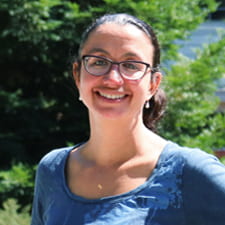IBSC | Catharina Lindley | May 7, 2020
Dr. Sofie Salama received an R01 research grant from the National Institute of Mental Health to study molecular and cellular defects that underlie complex neurodevelopmental diseases like autism and schizophrenia. Understanding these mechanisms will help in the development of approaches to prevent or ameliorate these conditions.
Multiple neurodevelopmental disorders, including autism and schizophrenia, have been associated with a specific segment on the human chromosome 1 (called 1q21.1) which shows frequent gene rearrangements, for example gene duplications and gene deletions.
Dr. Salama’s group recently identified a family of 3 genes that reside within the 1q21.1 locus: NOTCH2NL-A, -B, and -C. These genes are highly expressed during early brain development and promote cortical neuron stem cell maintenance and proliferation. With the newly received funds, the lab will test the hypothesis that the identified NOTCH2NL genes are required for normal human brain development and that alterations in their gene dosage contribute to the neurological phenotypes observed in patients with 1q21.1 deletions and duplications. Experimental approaches include the re-sequencing of this inherently difficult-to-sequence chromosome region in patients that are healthy or that are affected by 1q21.1-related disorders, as well as cell culture and organoid experiments to test the functionality of the 3 NOTCH family genes with respect to their role in promoting cortical development.
Funding for this 5-year project began on April 15th.

NOTCH2NL copy number variation in 1q21.1 disorders located on the human chromosome 1 illustration
